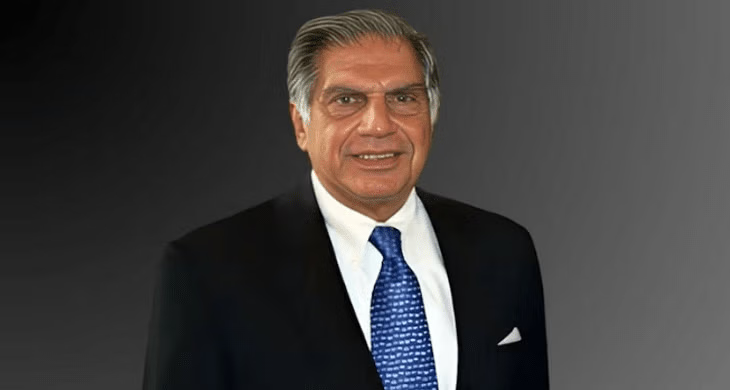On November 9, 2024, India lost one of its most revered industrialists, Ratan Tata, whose remarkable contributions to Indian industry, society, and global business continue to inspire generations. As Chairman Emeritus of the Tata Group, Ratan Tata’s leadership elevated not just the conglomerate, but the entire Indian business landscape, reshaping it to compete on the global stage.
A Visionary Who Globalized Indian Business
Ratan Tata took over the reins of the Tata Group in 1991, a pivotal time when India was undergoing economic liberalization. With his strategic foresight, he expanded the conglomerate into new territories, diversifying beyond India’s borders and making bold acquisitions that positioned Indian enterprises as global players. Two of his most ambitious and impactful deals—the 2007 acquisition of Corus Steel for $8 billion and the 2008 purchase of Jaguar Land Rover (JLR) for $2.3 billion—redefined global perceptions of Indian businesses. While Corus faced challenges due to changing regulatory environments, JLR turned into a major success story. Today, JLR accounts for nearly three-quarters of Tata Motors’ revenues.
Beyond these headline-grabbing deals, Tata’s acquisition of Tetley in 2000 marked a significant milestone. The $432 million deal made Tata Tea, later renamed Tata Global Beverages, the second-largest tea company in the world. These strategic moves were critical in transforming the Tata Group into a global brand that spans more than 100 companies across industries, including steel, automobiles, telecommunications, hospitality, and software services.
A Beacon of Technological Innovation
Ratan Tata’s passion for innovation is evident in his contributions to India’s automotive industry. His brainchild, the Tata Indica, launched in 1998, was the first car fully designed and manufactured in India. While it was a commercial success, his most ambitious project was the Tata Nano, introduced in 2008. Priced at just ₹100,000 (approximately $1,200), the Nano was aimed at providing affordable mobility to millions of Indians. Though it did not sustain its initial success due to marketing missteps and safety concerns, the Nano epitomized Ratan Tata’s commitment to social progress and technological advancement.
Beyond automobiles, Tata’s vision transformed Tata Consultancy Services (TCS) into India’s largest IT services company. Today, TCS is a global leader in the sector, employing over 600,000 people and generating annual revenues exceeding ₹2 trillion (around $24 billion). His emphasis on technology, innovation, and ethical business practices has propelled TCS to become a cornerstone of India’s IT revolution.
One of the defining characteristics of Ratan Tata’s leadership was his focus on philanthropy. Unlike many industrialists, whose companies are privately owned or publicly traded, the Tata Group has always been driven by a unique philosophy—roughly two-thirds of Tata Sons, the holding company of the Tata Group, is owned by charitable trusts. Under his guidance, these trusts have poured billions into education, healthcare, rural development, and social entrepreneurship. His commitment to uplifting society through philanthropy is perhaps best illustrated by the Tata Trusts’ efforts in establishing premier educational institutions like the Tata Institute of Social Sciences (TISS) and Tata Medical Center in Kolkata.
Ratan Tata’s philanthropic initiatives also extended into areas such as clean energy and affordable housing. Tata’s investment in Tata Power’s renewable energy ventures and his development of low-cost housing projects demonstrated his dedication to sustainable development and inclusive growth.
A Quiet Titan of Industry
Despite his towering achievements, Ratan Tata remained known for his humility, integrity, and quiet demeanor. Never married and a licensed pilot who enjoyed flying his own planes, Tata lived a modest life despite overseeing one of India’s largest business empires. He often said that his greatest joy came not from material wealth but from contributing to society. His personal commitment to ethical business practices and social good earned him not only business accolades but also the respect and admiration of millions. He was awarded the Padma Bhushan in 2000 and the Padma Vibhushan in 2008, India’s highest civilian honors.
He was involved in fostering the next generation of entrepreneurs. His personal investments in Indian startups such as Paytm, Ola, and UrbanClap underscore his belief in India’s entrepreneurial potential and digital future.
A Farewell from a Grateful Nation
As tributes poured in from around the world, it became evident that Ratan Tata’s influence transcended business. Prime Minister Narendra Modi referred to him as a “visionary business leader, a compassionate soul, and an extraordinary human bein.Mukesh Ambani, another titan of Indian industry, described him as a “dear friend” whose leadership took India to new heights. Gautam Adani referred to Tata as “a giant, a visionary who redefined modern India’s path”.These sentiments were echoed by many others who admired Tata not just for his business acumen, but for the values he stood for: humility, compassion, and integrity.
Ratan Tata’s passing leaves a profound void in Indian industry, but his legacy lives on in the companies he built, the lives he touched, and the dreams he inspired. His vision and leadership will continue to shape India’s economic and social landscape for years to come.
Rest in peace, Mr. Tata—your life’s work will forever be a beacon of hope, progress, and kindness.





